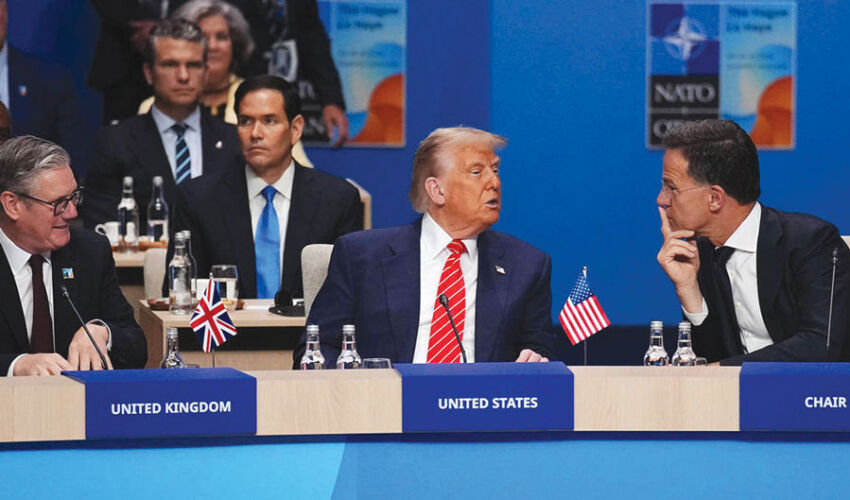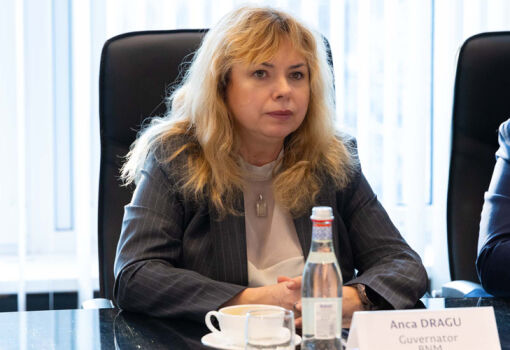
Trump’s strikes on Iran were reminiscent of the interventions in Afghanistan and Iraq after the Sept. 11 attacks, when the NATO bloc expanded its role into counterterrorism operations in addition to countering conventional military threats. The alliance supported the U.S.-led war in Afghanistan, but the invasion of Iraq was far more controversial because of the lack of conclusive evidence that Saddam Hussein had weapons of mass destruction and the lack of a clear mandate from the U.N. Security Council. The resulting rift prompted then U.S. Secretary of Defense Donald Rumsfeld to draw a controversial line between “Old Europe” and “New Europe.”
But the current situation is far more worrisome. Unlike in 2003, when the US at least tried to consult its allies, today Trump is simply keeping them in the dark. He has not presented any convincing evidence to justify an attack on Iran, and the director general of the International Atomic Energy Agency (IAEA), Rafael Grossi, has not backed up his claims of an immediate nuclear threat: just a couple of days before the attack, he said there was no evidence of Iran’s “systematic” work on nuclear weapons.
Astonishingly, many NATO leaders were not informed of the attack until after it was completed. By sidelining NATO, Trump has effectively relegated the alliance to a passive observer, weakening its core principles and signaling a dangerous shift in global diplomacy. Imagine, after all, Iran could have retaliated against U.S. bases in Turkey, potentially drawing my country into this war. And if there had been a leak of radioactive material dangerous to Turkish civilians, who would have been responsible?
Trump’s behavior has jeopardized NATO’s collective security. There is no guarantee that Israel will not violate the ceasefire, as it already did in March in Gaza. NATO members are faced with a fundamental question: Can the alliance survive if its members allow unilateral military actions that put others at risk?
The U.S. may have had reasonable evidence that Iran had violated the “Nuclear Non-Proliferation Treaty” or was about to do so. But in that case, the right thing to do would have been to present that evidence to the IAEA and seek a coordinated response within the UN Security Council. Alternatively, America could have decided that Iran would not retaliate and saw the attack as a way to force the Iranians back to the negotiating table. But talks between the two countries were due to resume anyway; they were derailed by Israeli interference. The third explanation is cynical but may be correct: the attack was intended to divert attention from Israel’s brutal war in Gaza.
Whichever explanation turns out to be correct, Trump’s actions are likely to deeply affect NATO, and the future of the alliance will depend on the reaction of its leaders. For example, Turkish President Recep Tayyip Erdogan should make clear the risks to NATO’s collective defense due to regional instability, especially given Turkey’s proximity to Iran. French President Emmanuel Macron and British Prime Minister Keir Starmer, as leaders of countries with a permanent seat on the UN Security Council, could play an important role in strengthening NATO-UN coordination.
German Chancellor Friedrich Merz ‘s position is important for shaping NATO-EU relations, while Norwegian Prime Minister Jonas Gahr Støre and Finnish President Alexander Stubb could revitalize diplomatic work and restore the alliance’s moral compass. Finally, the effectiveness of NATO Secretary General Mark Rutte will depend largely on leaders’ willingness to pursue a rational security policy within a legal framework.
Even without the current Iranian crisis, the NATO bloc was at a crossroads. The Hague summit may eventually be remembered as a turning point that will determine whether the alliance can remain the world’s most powerful defense organization, based on the common interests and contributions of its members, or whether it is destined to become an instrument serving only U.S.-Israeli strategic interests.
If I were in my former position today, I would use this summit to emphasize Israel’s increased aggression as well as the security risks to Turkey, the only NATO member in the region. I would have asked Trump whether, in his “America First” hierarchy, NATO allies are below non-NATO Israel. Any leader willing to ask that question would choose a principled stand against reckless military adventurism – and perhaps even help save the alliance.
As history shows, wars started before all diplomatic options are exhausted lead to negative results for all participants. Russia’s miscalculations in Ukraine serve as a grim reminder that it is easy to start a war, but much harder to end it.
Today, as Trump’s actions threaten to further erode hard-won international law, European leaders must fight back. If NATO fails to uphold the rule of law, the alliance risks losing its role as a cornerstone of global security. The fate of the alliance – and the future of global stability – depends on its leaders seeking peace rather than confrontation.
Ahmet Davutoğlu
Prime Minister of Turkey from 2014-2016 and Foreign Minister of Turkey from 2009-2014.
© Project Syndicate, 2025.
www.project-syndicate.org






